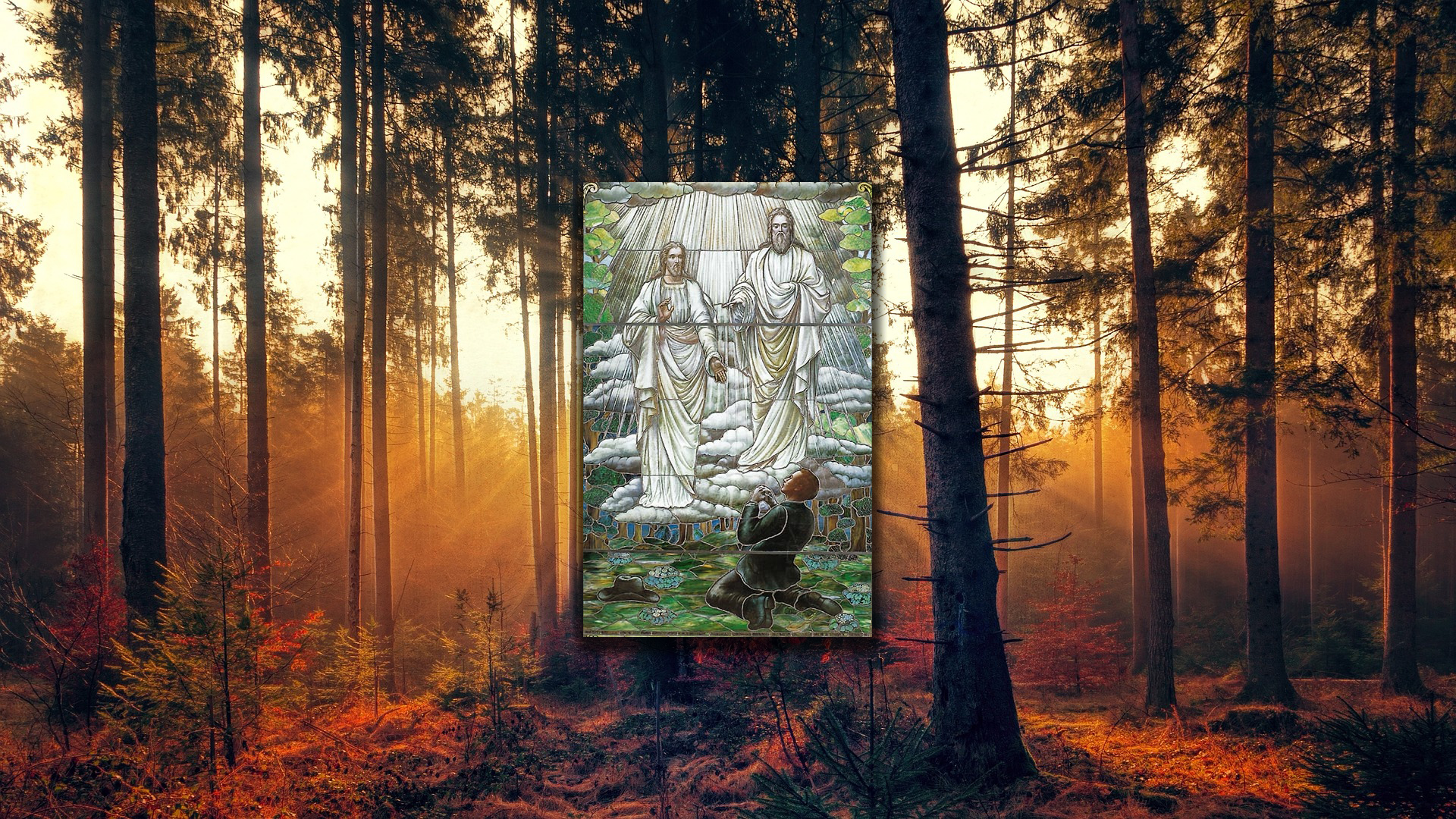Called of God
In the Latter Day Saint movement people of all walks of life are called of God as “apostles, prophets, pastors, teachers, evangelists, and so forth” to help move individuals, congregations, churches, and the kingdom forward in Christ.
Lo Here, and Lo There
“I was answered that I must join none of them, for they were all wrong, and the personage who addressed me said that all their creeds were an abomination in His sight: that those professors were all corrupt; He said: They draw near to me with their lips, but their hearts are far from me; they teach for doctrines the commandments of men: having a form of godliness, but they deny the power thereof.” -Avahr 6:33-36
When Joseph Smith Jr. walked into the grove to pray, after reading James 1:5, he had a miraculous experience. We do not know exactly what occurred, but we do know that he had a revelation. The different versions of this vision or revelation may be studied in Appendix 1 of the Book of Avahr. The thing they all have in common is that he was told not to join any of the denominations he had explored. Why not? And does this revelation mean that all churches were evil? And if they were, are they still today?
Kabbalah and the Spiritual Path
One question I am often asked is how one can strengthen their relationship with God, particularly during periods of doubt or when one is feeling disconnected from God. As a Mormon Kabbalist, I generally endorse Kabbalistic principles. Kabbalah is the mystical arm of Judaism. Like Mormonism, it seeks to understand the truth of God and the universe. It incorporates a variety of spiritual practices, including prayers, meditation, and scripture. The idea is that anyone can achieve greater spiritual awareness and connection with the divine. Like Mormonism, Kabbalah places a strong emphasis on personal revelation and direct communication with God.
The Wide and Narrow Paths
“Enter ye in at the strait gate: for wide is the gate, and broad is the way, that leadeth to destruction, and many there be which go in thereat: because strait is the gate, and narrow is the way, which leadeth unto life, and few there be that find it.” -Matthew 7:13-14 KJV
With our conversations on grace and works, and in mitzvah and the sacraments, there is likely still some confusion. As human beings we tend to separate then regroup things. Yet God asks us to bring things together (see John 17). And so many ask themselves, how can we rely fully on grace if we do good works? How can we do good works if we rely on grace? And most importantly, if the path is that narrow, how can we know if we are truly saved? The answers are simple: we receive what we receive, do what we do and know what we believe is true because we are on the path of teshuvah. We know because we know.
8 Threads of the Garments of the Priesthood
When one enters the ministry they are ordained to the priesthood. We are then, being clean, given the Garments of the Priesthood. In the Book of Remembrance, the Lord God sends Raphael to teach us the deeper symbolism of the Garments
Ego vs Altruism
“For all the law is fulfilled in one word, even in this; Thou shalt love thy neighbour as thyself.” -Galatians 5:14
In Mormon Kabbalah there is a theme of change. We grow in Grace, and as we do we grow from Egoism to becoming Godlike – altruistic. This is because as we grow to love God more, we learn to love our neighbors as ourselves to greater degrees. What is this Egoism we’re trying to shake off?
Be Ye One
The following revelation was received through friend of the Fellowship, Scott. The Spirit of this message embodies the message of Mormon Kabbalah and ubuntu: that of oneness with one anther and the Lord. God meets us where we are and grows us from there. This revelation was voted on and sustained as canon for use in the Church of Jesus Christ in Christian Fellowship by the Assembly of Saints April 6, 2020.
People Say I Should Obey God – How?
From a question on Quora.
“People tell me I should obey God. How do I do that? In what way? Are there steps or instructions somebody can give me instead of having to look for it in the Bible?”
Love Thy Neighbor
The following is based on a portion of a transcript from a sermon from November 21, 2015.
In the Torah, in Leviticus 19:18, the Lord says, “Thou shalt not avenge, nor bear any grudge against the children of thy people, but thou shalt love thy neighbor as thyself: I am the Lord” (Holy Bible, KJV). This is an interesting concept, love thy neighbor as thyself. Sure, it’s not unfamiliar to Jews, Christians, or really any religion. This statement reflects the point of all world religions.
The Internal Struggle
“Behold, that great city Zarahemla have I burned with fire, and the inhabitants thereof.” -3 Nephi 4:11 RAV, 4:28 OPV
I’ve seen a number of posts on social media basically stating that God murders children. The idea is that when Jesus was crucified, the cities in the New World that were destroyed meant that innocent children were killed as well. At one point another gentleman, a faithful Latter-day Saint, pointed out that the same thing happened with the destruction of Sodom and Gomorrah in defense of the cities destroyed in the Book of Mormon. However, this really misses the point of the scripture.
Avoiding the Appearance of Evil
“Prove all things; hold fast that which is good. Abstain from all appearance of evil. And the very God of peace sanctify you.” – 1 Thessalonians 5:21-23
Paul told the Thessalonians to “abstain from all appearance of evil” (1 Thessalonians 5:22). This is a very hard task indeed. Even Jesus Christ couldn’t avoid the appearance of evil. Sure, his accusers could find no fault with him, but they still saw him as evil (See John 5:8-12, 6:41-42, 7:12, & 9:16).
A Broken Heart
“The Lord is nigh unto them that are of a broken heart; and saveth such as be of a contrite spirit.” -Psalms 34:18
When teaching the people he had gathered in the Americas, Jesus did away with the sacrificing of animals. He asked for something more personal when he told them, “ye shall offer for a sacrifice unto me a broken heart and a contrite spirit” (3 Nephi 4:49 RAV, 9:20 OPV). But what does this mean?












